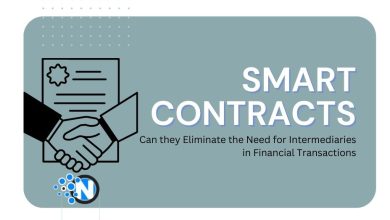Top 6 Tips to Choose the Right Bank for Your Needs
A bank is not just a place to stash your money; it’s an institution that can offer you various other services, including basic savings accounts and comprehensive financial solutions. That’s why it is advised to research and find a bank that suits your overall financial needs.
Whether you’re opening a savings account, looking for a mortgage, or seeking investment opportunities, finding a bank that aligns with your needs and goals is essential. With many options available in your own area or city, it can be somewhat difficult to explore the overall landscape of banking.
That’s why we have jotted down the top 6 tips for choosing the right bank for your needs. Keep reading to ensure a solid foundation for your financial journey.
1. Access Your Needs and Goals
Before diving into the vast array of options available, clearly understanding what you expect from a banking institution is crucial. Whether it’s a credit union, a local, or an online bank, take a moment to consider your financial objectives. You can ask yourself a couple of questions, including:
- Are you looking for a basic savings account to build an emergency fund?
- Do you have long-term goals that require investment services?
- Are you planning to take out a mortgage or apply for a business loan in the near future?
By identifying your specific needs, you can narrow down the choices and focus on banks offering services and features that align with your goals. Also, make sure to evaluate your banking habits and preferences to choose the right bank.
For example, if you are more comfortable with online banking, make sure you choose a bank that offers online services without traveling to their branches.
2. Evaluate Interest Rates
Interest rates directly impact the growth of your savings or the cost of borrowing, making them a key consideration in your decision-making process. Higher interest rates can help your savings grow faster, while lower rates can reduce the overall cost of loans and credit cards. Consider utilizing a savings APY calculator to gain a better understanding of how various interest rates impact your savings. This tool helps you make better financial decisions by letting you compare different rates and see how much your funds can grow over time.
During first meetings, many banks will only fill you with surface-level rates and details about interest. However, it’s your duty to demand the details of a specific account you are going to open in that bank.
The reason is some banks may offer promotional rates that expire after a certain period, so it’s important to understand if the rates are introductory or long-term.
For example, if you are looking to open a savings account and are looking for some of the best high-yield savings accounts, you can follow this link to find useful insights and a list of banks that offer the best interest rates: https://joywallet.com/article/best-high-yield-savings-accounts
3. Research Multiple Banks

Each bank has its own set of offerings, policies, and fees, and finding the one that aligns with your financial goals and preferences requires a comprehensive evaluation of multiple options and then making an informed decision based on your research.
Start by exploring a variety of banks and other financial institutions. Consider both traditional brick-and-mortar banks and online-only banks, as each can provide distinct advantages. The first thing you will have to look for is the reputation and establishment of a particular bank among customers.
Opt for a bank that has a solid track record and positive customer reviews. You can also consider choosing a bank outside your local area to find a more reliable solution with additional benefits.
4. Consider the Security of Your Funds
Ensuring the security of your funds should be your top priority. After all, your hard-earned money deserves the utmost protection. That’s why you will have to evaluate a bank’s security measures to make sure your financial assets are secured in any emergency situation.
Look for well-established banks with a solid track record and a history of financial strength. Consider their ratings from credit rating agencies and any notable awards or recognitions they have received. A financially stable bank is more likely to have robust security protocols in place.
You can also directly inquire to the bank manager about the bank’s security measures and technology. Find out if they use encryption and other advanced security technologies to protect your online transactions and personal information. This way, you will be assured that your money is protected from any unwanted interventions.
5. Consider Convenience
Well, first of all, you are going to hand over your money to the bank. So, getting caught in the hassle of visiting the bank for each transaction and approval is the last thing you will want. Therefore, looking for a bank with branches and ATMs conveniently located near your home, workplace, or frequently visited areas is advised.
Easy access to physical locations can be beneficial for in-person transactions, such as cash deposits or face-to-face consultations. Also, make sure the bank offers user-friendly online banking platforms and mobile apps.
These facilities will allow you to manage your accounts, transfer funds, pay bills, and deposit checks from the comfort of your home or on the go. Robust online banking features ensure you can conveniently handle your financial transactions anytime, anywhere. So, make sure to include this aspect on your list.
6. Ask for Branch Availability
While online and mobile banking have become increasingly popular, there are still instances where you will need to visit physical branches of your bank. The best way to opt for a bank with maximum branch availability is to assess your own banking preferences.
Choosing a bank with conveniently located branches is crucial if you prefer in-person interactions for certain transactions or require face-to-face assistance. Consider the proximity of branches to your home, workplace, or areas you frequently visit.
Additionally, if you travel frequently or have properties in different regions, choosing a bank with a wide branch network can ensure access to your accounts wherever you go. Apart from all these aspects, you must also ask for the branch’s operating hours.
Check if the bank offers extended hours or has branches open on weekends. This can be beneficial if you have a busy schedule during regular banking hours.





